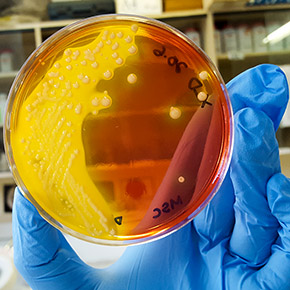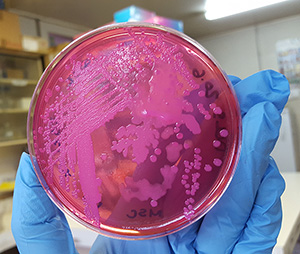Elisheba Malau
Faculty of Science and Technology, School of Applied and Biomedical Science
Challenges to improving population health in resource  poor settings such as PNG
poor settings such as PNG
Infectious diseases remain the leading contributor to poor health outcomes in resource poor settings. Many of these diseases are preventable, but run rampant without proper preventative interventions and control measures in place. Diarrhoea, despite being largely preventable and treatable, still ranks as one of the leading contributors to illness and death in low-income settings.
There are numerous causes of diarrhoeal disease, with differing treatment and preventative strategies according to the cause of illness. The more we know about gastrointestinal pathogens circulating in low-income countries, the better placed we will be to adequately prevent, diagnose, and treat diarrhoeal diseases. Matters of governance and infrastructure in communities struggling in low-poor income countries, also influence how these enteric diseases are transmitted.


Elisheba Malau is supported by an Australian Government Research Training Program (RTP) Stipend and RTP Fee-Offset Scholarship through Federation University Australia.